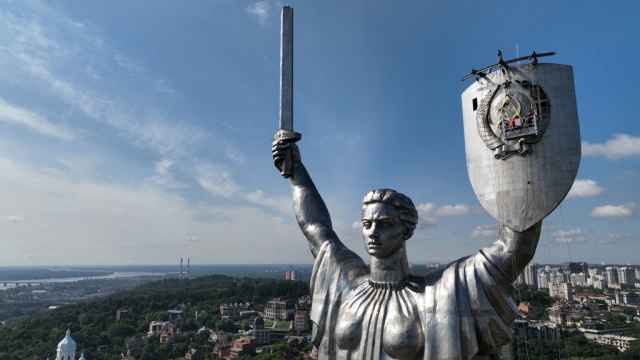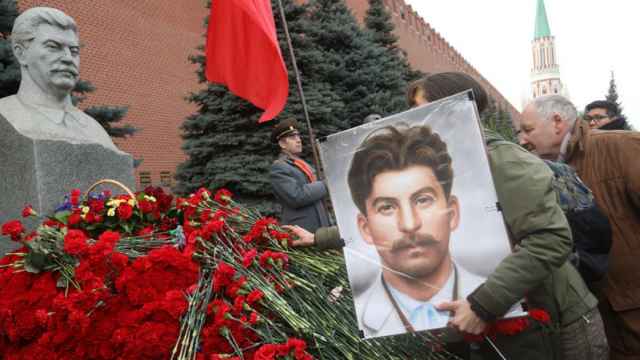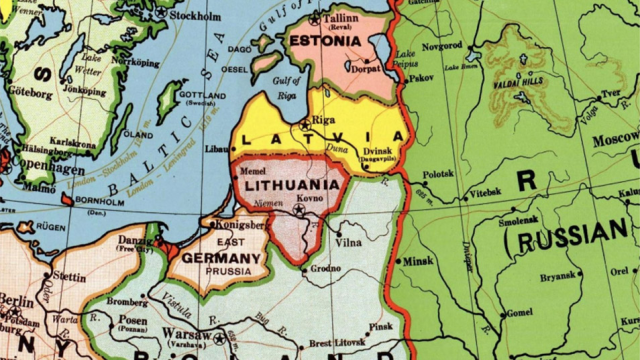I was conscripted into the Soviet Army in November 1983, barely two
months after the tragic night of Sept. 1, when a Soviet Su-15
interceptor jet downed a Korean civilian airliner (KAL007) over the Sea
of Japan. By coincidence, my regiment was one of the units directly
responsible for the tragedy.
Back then, it took eight days for the aging Politburo to agree that
Soviet Air Defense had committed a dramatic mistake. Western sanctions
(including a suspension of Aeroflot flights to America) soon followed.
Moscow responded by using a UN Security Council veto to block a
condemnation resolution, and subsequently blamed U.S. intelligence for the
tragedy. It took eight years for the Soviet Union to issue a full apology to South Korea
in 1991, and 10 years for Boris Yeltsin — then president of the Russian
Federation — to release classified Soviet communication transcripts of
the incident.
Between the accident and the apology, the Soviet Union ceased to exist.
The MH17 incident, where a civilian airliner was shot down within
Ukrainian airspace in July 2014, has many similarities. But it also has
one stark contrast. Unlike KAL007, whose passengers fell victim to the
geo-strategic grandstanding of the Cold War, the MH17 airliner was the
victim of a new type of “hybrid war” in rebel-controlled territory.
Technically speaking, the Russian state had nothing to do with it.
In 1983, Soviet government decided to accept the KAL007 incident as
damaging to the Soviet Union's reputation. Their decision to admit the mistake
was not a sign of weakness, but a declaration of might. Soviet leaders
clearly understood the importance of maintaining the Soviet Union's global
brand.
In summer 2014, however, the Russian state could not afford to admit the
accident. Such an admission would expose the regime’s direct and
unlawful involvement in the Donbass war, but also because it would
demonstrate the weakness of a regime that leases lethal anti-aircraft
weapons to rebel warlords.
In outlining the MH17 incident, I will refrain from providing a complete
timeline of versions that originated in the Russian media, government,
and military sources. Instead, here are some plain facts about the
incident. Within minutes of MH17's downing, rebel commanders and some
Russian media outlets reported separatists had hit a Ukrainian transport
plane. In less than 30 minutes, it became clear that the plane was
civilian, and that the number of victims was one of the largest in
history. Later, experts confirmed a Boeing-777, which flies above 10,000
meters, could only be hit by a surface-to-air missile.
Within hours, the MH17 drama became a major global issue, resembling
KAL007 in every detail, except one — the culprit's recognition of an
unintended crime. Ukraine became an aviation pariah; and Russia became
increasingly subject to international condemnation.
In addition, the incident became a key front in the rapidly developing
“information war” between Russia and the West. In general, Western media
sources usually sympathized with the “democratic” Ukrainian side of the
conflict. Russia was portrayed as an aggressor state. Sanctions were
generally presented as as an anodyne to Russian intervention in a
sovereign's affairs.
Russian mass media, predominantly state-controlled or state-aligned, had
an opposing perspective on events in Ukraine. “Crimea is ours" euphoria
from March mutated into a gloomier concept of “Novorossia” (the new
Russia), and even to the idea that Putin had somehow spared Kiev “from a
2-hour invasion.” Major newspapers and TV stations agitated for Donbass
rebels, who were "liberating their land from a fascist junta in Kiev."
While Russian officials routinely denied the Kremlin's involvement in
the MH17 tragedy, Russian propaganda outlets served multiple post-truth
versions of the same drama. They ranged from stories about Ukrainian
fighter jets that fired a missile on MH17 "in order to blame Russia," to
the utterly conspiratorial theory of a planned terror attack. Days of
sorrow and anger were thus transformed by outlets such as RT, Rossyia-1,
Vesti-24, KP and Life into a textual collection of explanations – each
stranger and more colorful than the last.
With the Kremlin firmly entrenched in a denial narrative,
pro-governmental media chose a propaganda technique that precedes the
Cold War. This method, known to professional agitators and propagandists
as a “rotten herring,” was first described by the British politician
and historian Lord Arthur Ponsonby, who had analyzed World War II propaganda.
The method is simple: insert unrelated truths into every denial.
Alongside the fresh “herring” truth the propagandist must provide
barrels of lies (rotten herrings) which preserve the national narrative
whilst simultaneously vilifying oppositional narratives. As Sir Arthur
summarized: “When war is declared, truth is the first casualty.”
Following the Crimean annexation, the Kremlin has invested considerable
resources into maintaining anti-Western and anti-Ukrainian
indoctrination. Whereas the Soviet Union relied on crude radio jammers to
prevent citizens from listening to the international media, the modern
Russian state constructs a sophisticated white noise of conspiratorial
narratives.
The jammers of a post-modern dictatorship are thus the “unmasking”
stories that mix CIA, MI5, freemasons, Bolsheviks, and 'Jewish
perpetrators.' At the same time, objective, investigative reports are
rejected as "biased," "Russophobic," "subjective," and "amateurish."
State institutions were even more aggressive in the denial. After the Netherlands expressed displeasure with the Kremlin's position over MH17, Russia's Foreign Ministry summoned the Dutch ambassador to voice their displeasure at a “biased investigation” and lack of attention paid to “evidence supplied by the Russian side.” The moral decay of the official who delivered such a rant to the ambassador of a country that lost 189 citizens is quite unfathomable. Come to think of it, the Russian state never did send condolences to the people of the Netherlands ...
One strange quality is consistent among Russian power mongers: they
utterly dislike making apologies regardless of evidence, court
decisions, or common sense.
And, in Putin's emergent pariah state, an apology is nothing more than
weakness.
A Message from The Moscow Times:
Dear readers,
We are facing unprecedented challenges. Russia's Prosecutor General's Office has designated The Moscow Times as an "undesirable" organization, criminalizing our work and putting our staff at risk of prosecution. This follows our earlier unjust labeling as a "foreign agent."
These actions are direct attempts to silence independent journalism in Russia. The authorities claim our work "discredits the decisions of the Russian leadership." We see things differently: we strive to provide accurate, unbiased reporting on Russia.
We, the journalists of The Moscow Times, refuse to be silenced. But to continue our work, we need your help.
Your support, no matter how small, makes a world of difference. If you can, please support us monthly starting from just $2. It's quick to set up, and every contribution makes a significant impact.
By supporting The Moscow Times, you're defending open, independent journalism in the face of repression. Thank you for standing with us.
Remind me later.







